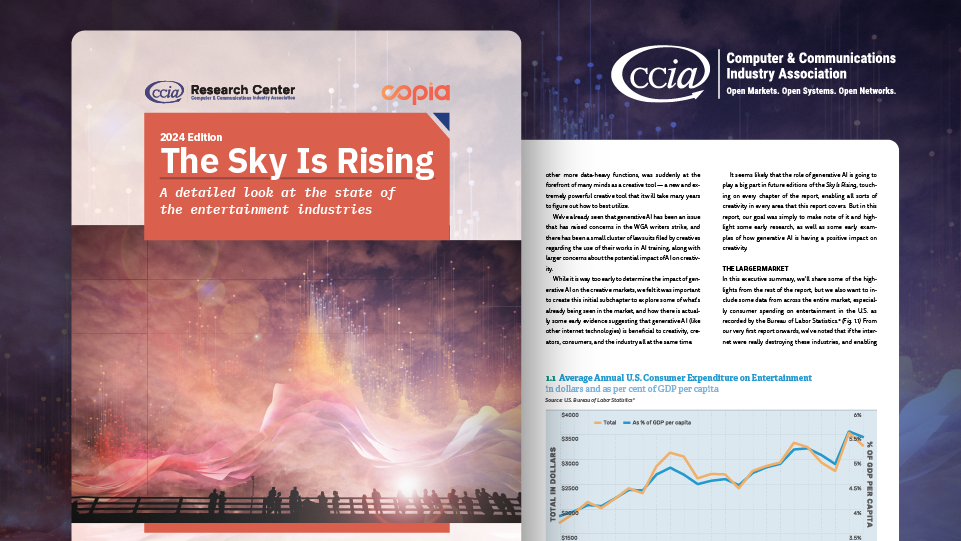Today’s Internet: Made Possible By A Rude Rap Song
Twenty years ago today, the Supreme Court issued its landmark decision in Campbell v. Acuff-Rose, its most recent consideration of fair use. The Court made clear, in a unanimous opinion, that a commercial parody was fair use under Section 107 of the U.S. Copyright Act. A lower court had held that the rap act 2 Live Crew’s “Pretty Woman,” a lewd skewering of Roy Orbison’s saccharine love ballad “Oh, Pretty Woman,” was presumptively unfair because it was a commercial parody. When the group and frontman Luther Campbell appealed, the Supreme Court reversed, holding that the “more transformative the new work, the less will be the significance of other factors, like commercialism, that may weigh against a finding of fair use.” (Some interesting C-SPAN coverage of the case before the Court’s decision, hinting at class overtones of the dispute is available here.)
Perhaps since the early 1980s, when New York courts blessed Saturday Night Live’s riff on the “I Love New York” theme with biblically-themed skit entitled “I Love Sodom,” there had been an understanding that commercial parodies did not “compete” with the targeted work. This, even though SNL’s send-up of a crime-ridden but image-conscious New York as a modern day Sodom and Gomorrah likely undermined the city’s efforts to promote tourism.
Campbell cemented the viability of commercial parody in U.S. copyright jurisprudence, along with the principle of “transformativeness” as one motivating principle of Congress’s decision to enact fair use. The idea of “transformativeness,” often associated with Judge Pierre Leval’s influential 1990 article, “Toward a Fair Use Standard,” has helped ensure that innovative new commercial technologies, which often involve copying but still increase the value and accessibility of creative works, can come to market.
The anniversary of Campbell is important to mark due to the growing significance of fair use for commercial purposes and businesses. Various business sectors, such as Internet services like cloud computing, storage, search and data mining, as well as consumer electronics, documentaries, and journalism all depend on fair use, and often other limitations to copyright as well. As I wrote when summarizing the major fair use cases of 2013, numerous commercial entertainment defendants also avail themselves of the fair use doctrine.
In the two decades since Campbell, transformativeness has actually become so significant that sometimes litigants forget that it is only one helpful means of ascertaining fair use, rather than an obligatory hurdle that defendants must surmount. (A point Swatch recently discovered in its unsuccessful effort to suppress distribution of an investor call transcript by Bloomberg. The publication of the transcript in its entirety was hardly transformative, but certainty newsworthy.)
It is odd but true that the significance of commercial fair use is often lost in the copyright conversation. A recent House Judiciary hearing on fair use underrepresented the significance of fair use to business, and just this week I sat through a policy event where a speaker confidently declared U.S. trade policy need not address fair use because fair use deals only with “non-commercial” use — blissfully unaware, it would seem, that a unanimous Court thought otherwise. The most recent numbers available suggest that about 17% of U.S. GDP was produced by industries benefiting from fair use and other exceptions to copyright, and that the same industries (increasingly, high-value services) now lead export growth. As a result, other jurisdictions have realized that U.S. copyright law’s hospitality to basic, essential Internet functions like search is a national competitive advantage.
Some time ago, DisCo contributor Jon Band and I wrote (only partly in jest) that “Justice Stevens invented the Internet” due to his essential role in the outcome of the Sony Betamax case, another important fair use decision. It’s worth noting today that, like Justice Stevens, Luther Campbell and 2 Live Crew also had a role to play in shaping the legal rules that have enabled the modern Internet.








